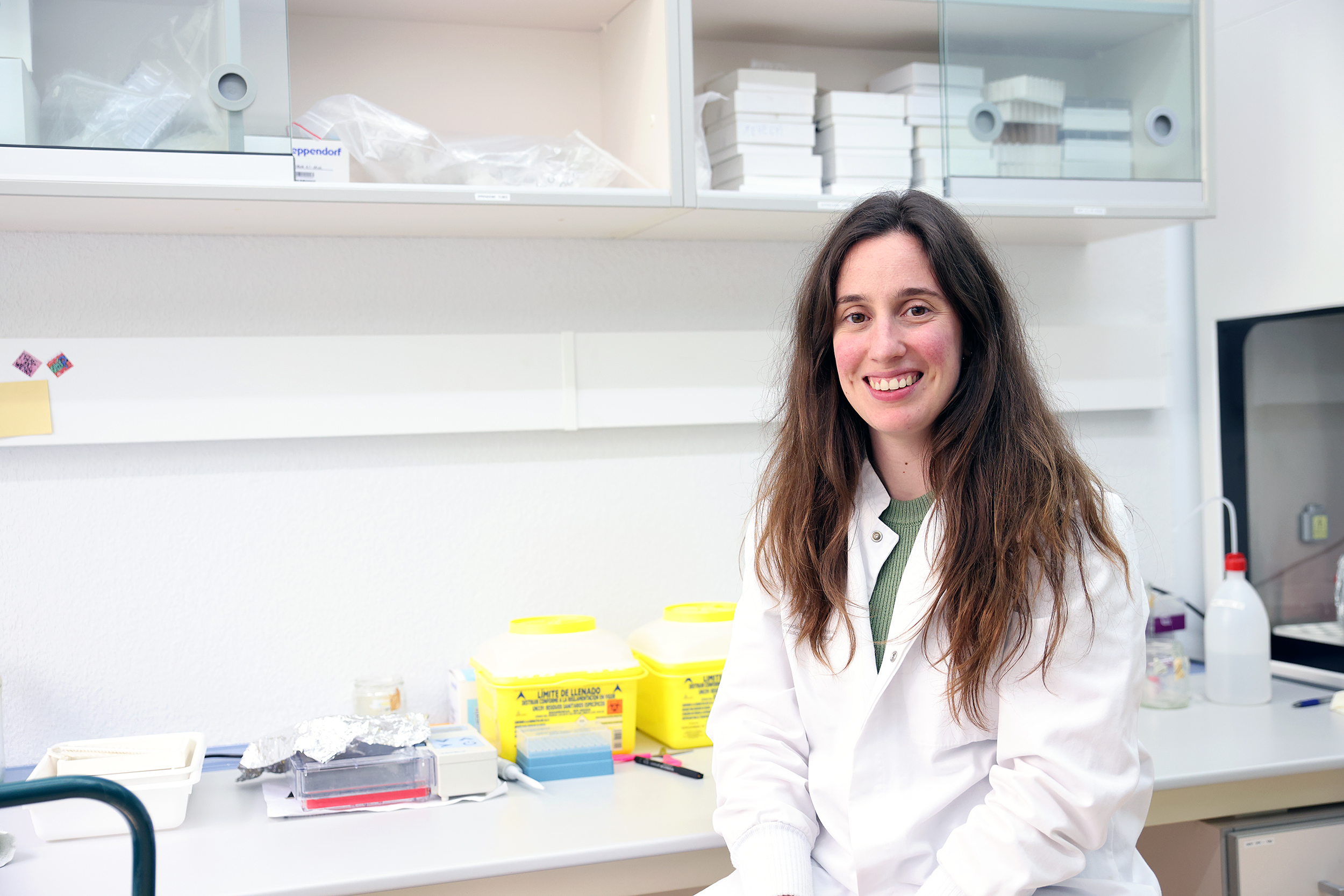"Bats have intrinsic value."
2024/04/05 Galarraga Aiestaran, Ana - Elhuyar Zientzia Iturria: Elhuyar aldizkaria

Cats, dogs and other domesticated animals have a great success on the net. Biologist Nerea Vallejo López, however, is interested in bats. In fact, a thesis is being made about them at the UPV/EHU, and he argues for many reasons to explain why they are such interesting animals: “People don’t know them, but not because they are there. In the Basque Country there are 27 bat species and 1,200 in the world. They're very varied and they're also like another world. For example, the people of Euskal Herria live at night, and as we use sight, they use sweeping. Also, they're flying people, they live in groups -- they have a lot of really interesting things to do a lot of research."
It highlights that they are the only flying mammals, which is evolutionarily very special. "They move a lot, some can walk 30 kilometers in a single night to go to their feeders," he explains.
Remember that when he was young he liked wild animals a lot and he dreamed of being a veterinarian or a biologist. Thus, he graduated in Biology at the UPV/EHU. There's a team there that has been researching bats for years with which they did their graduate work. Now the thesis is also being made with the same team, trying to get to know the trophic ecology of the Geoffroy bat. "The Geoffroy Bat is a small bat that lives in Europe and I research its diet and how the diet varies depending on time, the landscape surrounding the colony, etc. ".
The origin of the coronavirus could be in the bats, and perhaps it was supposed that a movement or opinion could be generated against them. However, Vallejo denies that "it is true that there was a lot of talk about bats, but bat researchers and disseminators have done a great and very good job of contextualizing this information. They were disseminated from the very beginning and today many activities are carried out around bats, as in the family, to bring these animals to the public and not to be so strange.”
Moreover, Vallejo has reminded that in 2020 he carried out thesis samples in summer, and that, in general, no one had problems searching for samples to go home or place. “Although many people have known them for that, I have not noticed differences before and after COVID-19.”
Bat threats
So, Vallejo doesn't care about people's attitude, but he does care about the loss of bat habitats. "There are many species of bats threatened, also in Euskal Herria: almost all are listed as of interest and four, I think, endangered. In general, their greatest risk factor is the degradation and disappearance of timber. In our environment the caves and old houses, the dwellings are the main shelters; sometimes the caves are also found in the dwellings. And on the other hand, bats that use trees and forests as shelter are also very threatened."
According to Vallejo, the caves are very degraded and have a great impact when leisure and sport activities are carried out on a massive scale. "However, people respect a lot in general," she adds.
Even with the disappearance of the houses they lose some shelters. Bats that live in forests are kept in the pit of old trees, but it's not so easy to find them. "Our mountains are full of plantations, and in those cases the bats have not kept where."
Following the problem of logging, Vallejo pointed to another problem: food. "In recent years, the landscape of our environment has changed a lot and has become very degraded by human action. This has a direct impact on biodiversity, so that insects have disappeared worldwide. Most Basque and world bats eat insects and also need many insects to survive."
It gives you a fact: in one night you can eat more than half your weight. Because they have a rapid metabolism and they need a lot of energy to fly and get their pups through. "Bats then perceive the impact of landscape changes and agricultural intensification on biodiversity."
Intrinsic value
For Vallejo, it's not easy for people to understand how important it is to investigate bats. "Thanks to the dissemination that has been made lately, people have begun to know the benefits they produce in ecosystems: some, in the tropics, are pollinators or disperse seeds; especially in our environment, as so many insects eat, we have begun to investigate whether they have a positive effect on pests... but I think we should go further and give natural value to bats."
In short, he claims that they have a fundamental role in the global ecosystem and that their research is important for their value to ecosystems.
He accepts that research work is hard, but it does do a lot. He has spent so many years studying first and then researching, he has trouble imagining himself. So even though it's open, it likes to do research, and at the moment it's going to do it.

Gai honi buruzko eduki gehiago
Elhuyarrek garatutako teknologia






